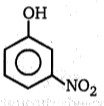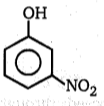A liquid was mixed with ethanol and a drop of concentrated H2SO4 was added. A compound with a fruity smell was formed. The liquid was:
(1) HCHO
(2) CH3COCH3
(3) CH3COOH
(4) CH3OH
एक द्रव को एथेनॉल के साथ मिश्रित किया गया और H2SO4 की एक बूंद की को मिलाया गया। एक फल जैसी सुगंध वाले एक यौगिक का निर्माण हुआ। द्रव था:
(1) HCHO
(2) CH3COCH3
(3) CH3COOH
(4) CH3OH
(A) on heating isomerizes to (B). What is the structure of (B) ?
1. 
2. 
3. 
4. 
(A) को गर्म करने पर समावयवी (B) देता है। (B) की संरचना क्या है?
1. 
2. 
3. 
4. 
*Isomerisation - समावयवता
The reaction;
RCOOH RCH2OH is called:
(1) Corey House reaction
(2) Bonveault-Blanc reaction
(3) Clemmensen reduction
(4) none of the above
अभिक्रिया;
RCOOH RCH2OH को कहा जाता है:
(1) कोरी हाउस अभिक्रिया
(2) बूवो-ब्लांक अभिक्रिया
(3) क्लीमेन्सन अपचयन
(4) उपरोक्त में से कोई नहीं

(more volatile) (less volatile)
Product (A) of the above reaction is:
1. 
2. 
3. 
4. 

(अधिक वाष्पशील) (कम वाष्पशील)
उपरोक्त अभिक्रिया का उत्पाद (A) है:
1. 
2. 
3. 
4. 
Phenol can be converted into salicylic acid by
(1) Etard's reaction
(2) Kolbe's reaction
(3) Reimer-Tiemann reaction
(4) both (2) and (3)
फीनॉल को सैलिसिलिक अम्ल में किसके द्वारा परिवर्तित किया जा सकता है?
(1) ईटार्ड अभिक्रिया
(2) कोल्बे अभिक्रिया
(3) राइमर-टीमान अभिक्रिया
(4) (b) और (c) दोनों
The products of combustion of an aliphatic thiol (RSH) at 298K are:-
(1) CO2(l), H2O(g)andSO2(g)
(2) CO2(g), H2O(g)andSO2(g)
(3) CO2(l), H2O(l)andSO2(g)
(4) CO2(g), H2O(l)andSO2(l)
298 K ताप पर, एक एलिफैटिक थायोल (RSH) के दहन का उत्पाद हैं:-
(1) CO2(l), H2O(g) और SO2(g)
(2) CO2(g), H2O(g) और SO2(g)
(3) CO2(l), H2O(l) और SO2(g)
(4) CO2(g), H2O(l) और SO2(l)
What is formed when a primary alcohol undergoes catalytic dehydrogenation?
1. Aldehyde
2. Ketone
3. Alkene
4. Acid
जब एक प्राथमिक एल्कोहॉल, उत्प्रेरकीय डाइहाइड्रोजनीकरण से गुजरता है तो क्या निर्मित होता है?
(1) एल्डिहाइड
(2) कीटोन
(3) ऐल्कीन
(4) अम्ल
Consider the following alcohols,
(I)


The order of decreasing reactivities of these alcohols towards nucleophilic substitution with HBr is:-
1. III>I>IV>II
2. III>I>II>IV
3. I>III>IV>II
4. I>III>II>IV
निम्नलिखित एल्कोहॉल पर विचार कीजिए,
(I)


HBr के साथ नाभिकस्नेही प्रतिस्थापन के लिए इन एल्कोहॉल की घटती क्रियाशीलता का क्रम है:-
1. III>I>IV>II
2. III>I>II>IV
3. I>III>IV>II
4. I>III>II>IV
(A) → B + C; (B) and (C) both gives +ve iodoform test.Compound (A) is:-
C5H10O H3O+
1. CH3-CH=CH-O-CH2-CH3
H
l
2. CH3-C-O-CH2-CH3
l
CH3
3. CH3-C-O-CH2-CH3
ll
CH2
4. Both (2) and (3)
(A) → (B)+ (C); (B) और (C) दोनों +ve आयडोफॉर्म परीक्षण देते हैं। यौगिक (A) है
C5H10O H3O+
1. CH3-CH=CH-O-CH2-CH3
H
l
2. CH3-C-O-CH2-CH3
l
CH3
3. CH3-C-O-CH2-CH3
ll
CH2
4. दोनों (2) और (3)
The ionisation constant of phenol is higher than that of ethanol because
1. phenoxide ion is bulkier than ethoxide
2. phenoxide ion is stronger base than ethoxide
3. phenoxide ion is stabilised through delocalisation
4. phenoxide ion is less stable than ethoxide
फीनॉल का आयनन स्थिरांक एथेनॉल की तुलना में अधिक है क्योंकि
(1) फीनॉक्साइड आयन एथॉक्साइड की तुलना में बहुत स्थूल है
(2) फीनॉक्साइड आयन एथॉक्साइड की तुलना में अधिक प्रबल क्षार है
(3) फीनॉक्साइड आयन को विस्थानन के माध्यम से स्थायी किया जाता है
(4) फीनॉक्साइड आयन, एथॉक्साइड की तुलना में कम स्थायी होता है




